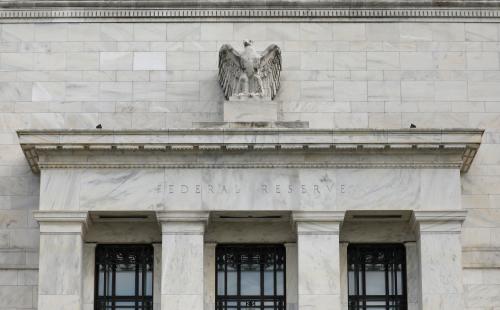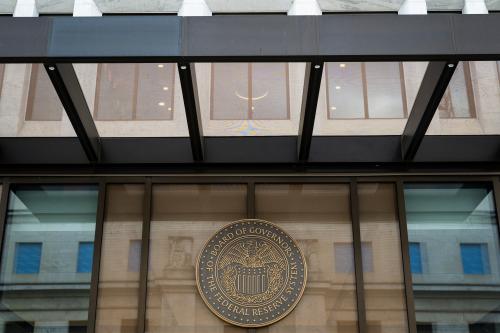What are the big questions facing central banks around the world these days? We put that question, in mid-September, to three central bank veterans – Janet Yellen, former chair of the Federal Reserve and now a Distinguished Fellow in Residence at the Hutchins Center on Fiscal & Monetary Policy at Brookings; Lucrezia Reichlin, former director of research at the European Central Bank (ECB) and now a professor at the London Business School; and Raghuram Rajan, former chief economist at the International Monetary Fund and governor of the Reserve Bank of India, and now a professor at the University of Chicago Booth School of Business. (You can watch the full 60-minute video here).
Here’s what they had to say:
Janet Yellen
Yellen said that the Federal Reserve faces a difficult task in managing the current expansion, and that central bankers in the U.S. and elsewhere need to think about what to do if long-run equilibrium interest rates remain low, which would increase the likelihood that the Fed will again drop interest rates to zero. She also said that the role that financial stability considerations should play in monetary policy is still unresolved. (Yellen mentioned a paper – Should the Fed regularly evaluate its monetary policy framework? – presented at the Brookings Papers on Economic Activity conference in September by Eric Rosengren, the president of the Federal Reserve Bank of Boston.)
Lucrezia Reichlin
Reichlin turned to the ECB, and suggested there is good reason for the central bank to prolong unconventional monetary policy measures beyond this year, given persistently low inflation forecasts. She also discussed whether the euro area and the euro framework are robust to the next crisis.
Raghuram Rajan
Rajan wondered whether the scale of the financial sector has constrained the room for monetary policy and expressed concern about the lack of a global governance structure for an increasingly integrated world where central bank actions have global spillovers.
The Brookings Institution is committed to quality, independence, and impact.
We are supported by a diverse array of funders. In line with our values and policies, each Brookings publication represents the sole views of its author(s).







Commentary
Yellen, Reichlin, and Rajan on the big questions facing central banks around the world
October 18, 2018